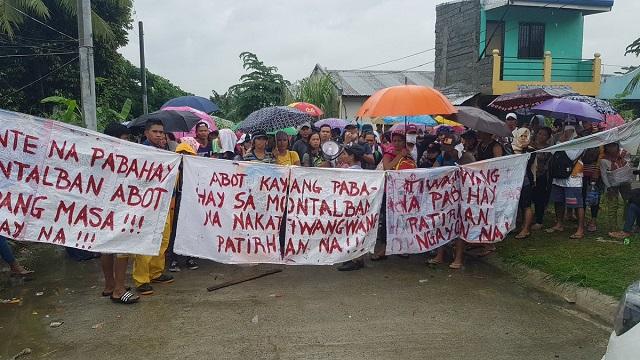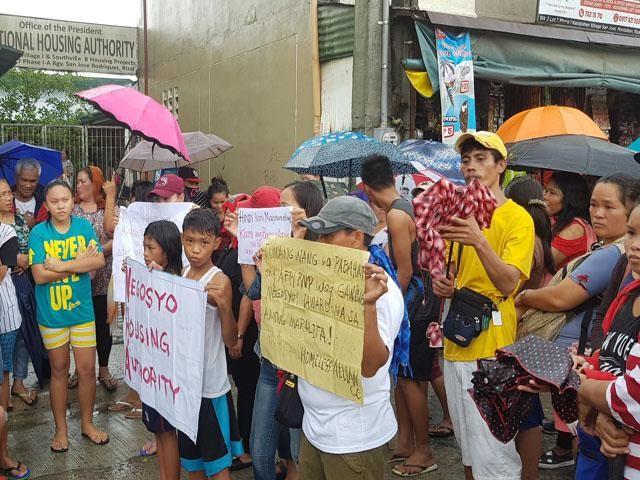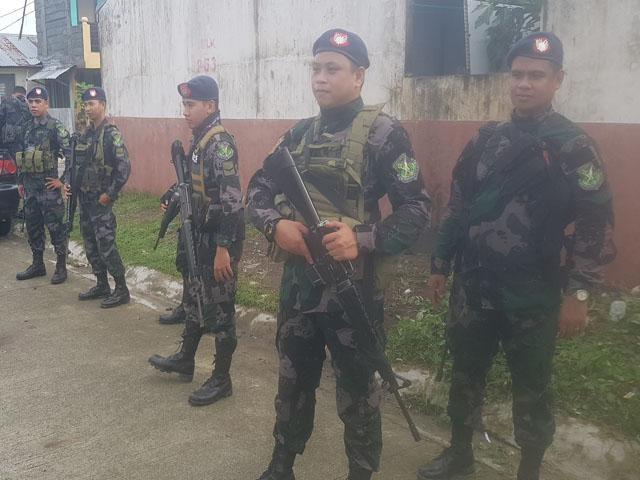Kadamay takeover of housing units a reaction to slow gov’t process

Mely Mejica, 58, peeks inside her rented house in Brgy. San Isidro in Rodriguez, Rizal, taking care not to disturb one of her grandchildren sleeping on the floor. Her two daughters, both carrying babies, emerge from a curtained enclosure to greet her.
Mejica shares the small space with the families of her two daughters and her husband who works as a construction worker in Quezon City.
She tells us it is a small miracle that she can stretch her husband's minimum wage salary to pay the P2,500 monthly rent apart from the utility bills and food for all the people living under her roof.
She considers it a cruel joke that she is renting a house in an informal settler relocation area, in a house, owned by a former informal settler much like herself.
Things had not always been this hard for Mely. She used to own her own house near the Payatas landfill in Quezon City — an informal settler in a government-owned land. In 2007, her house was demolished, forcing her to relocate to Rodriguez and pay rent.
She says her dreams are simple: to have a house she can call her own.

When militant group Kadamay and the Montalban Homeless Alliance (MHA) called last Wednesday to say they were taking over vacant houses in the PNP AFP La Solidaridad housing project, Mely was among the first on site.
Kadamay had a made a name for itself after occupying vacant government housing projects in Pandi, Bulacan, in 2017. Despite efforts to dislodge them, the Kadamay members remained firm. Eventually, President Rodrigo Duterte allowed them stay, paving way for House Joint Resolution No. 2 authorizing the National Housing Authority to redistribute unused or unoccupied government housing units to local government employees and qualified informal settlers.
The MHA, on the other hand, claims to represent some 5,000 informal settlers living in Rizal province.
However, unlike the one in Pandi, Kadamay and the MHA's takeover in Rodriguez ended in failure. After a brief standoff with residents and police, they were forced to leave the housing site.
The following day, both groups picketed the local NHA office to protest the agency's failure to follow the provisions of Joint Resolution No. 2.
Kadamay national chairperson Gloria Arellano believes the NHA was intentionally delaying the process of reallocating vacant housing units at the PNP-AFP housing site. She says the local NHA office had earlier instructed Kadamay and MHA members to identify the vacant housing units that could be subject to Joint Resolution No. 2.
An NHA official speaking on condition of anonymity says the MHA and Kadamay have already submitted a list of applicants but that the agency could not start processing their requests since the implementing rules and regulation (IRR) of Joint Resolution No. 2 has yet to be finalized.
"Kung sila ang tatanungin mo walang bakante ngayon. Sabi nila meron ho, eh di sila maniwala kaya tiningnan ng mga tao mas marami pa," the official explains.
A visit to the project site reveals several houses were indeed unoccupied, some having no doors, windows and perimeter walls. In some units, grass and other foliage choked the entrances.
NHA Region 4 director Susana Nonato says all 700 houses in the La Solidaridad Estates housing project have already been awarded to PNP and AFP personnel and that all are considered occupied.
On Friday, following the President's orders to safeguard the housing site, PNP SWAT and members of the Rizal Provincial Mobile Force Company were deployed to prevent any future takeover attempt by Kadamay and the MHA.

Kadamay and its allies, on the other hand, vowed to continue their fight, believing it was their right to claim unused and unoccupied housing projects of the government. —KBK, GMA News




